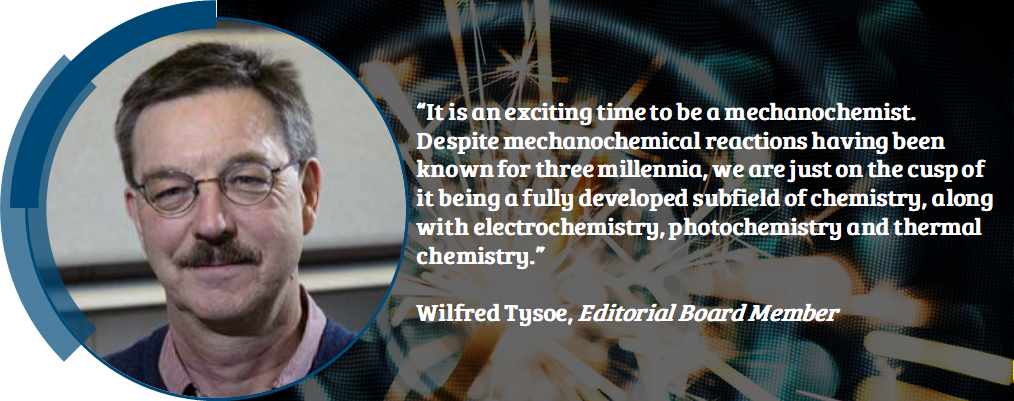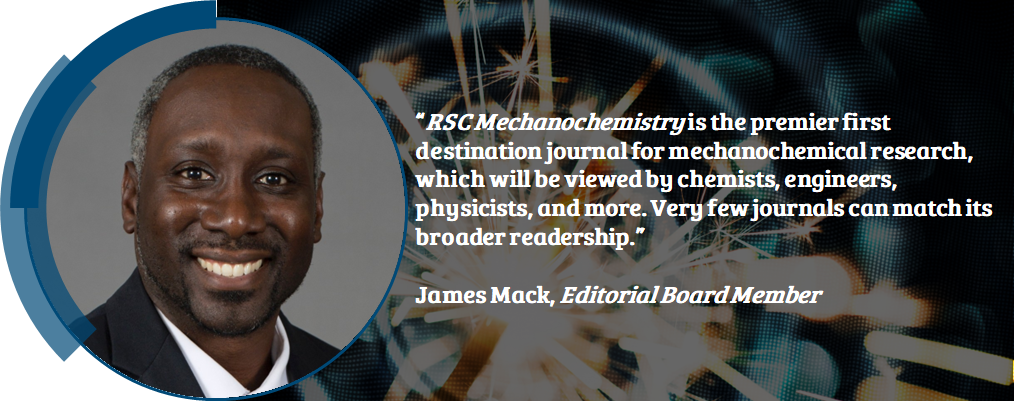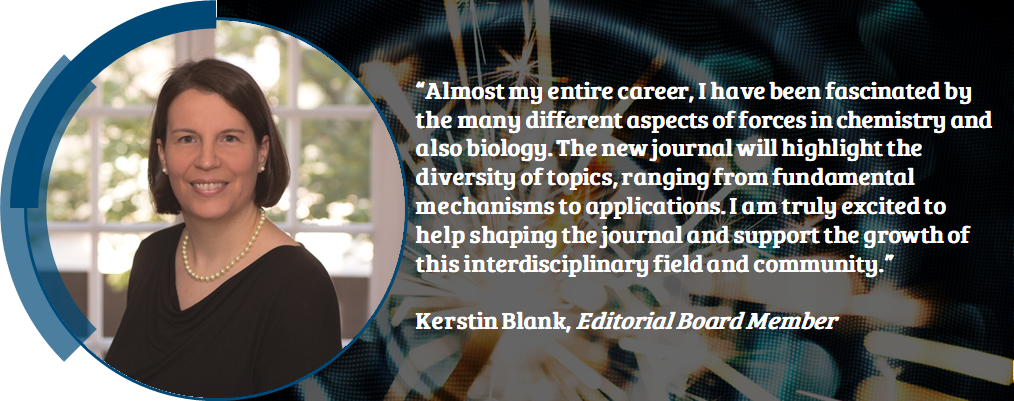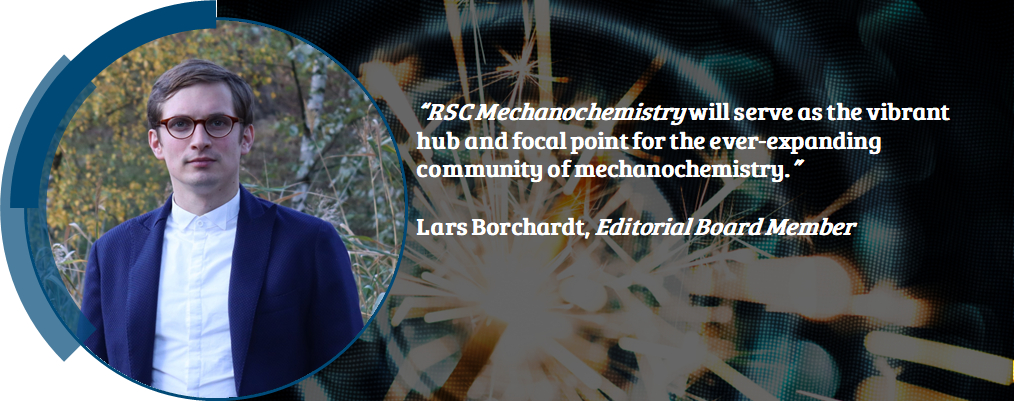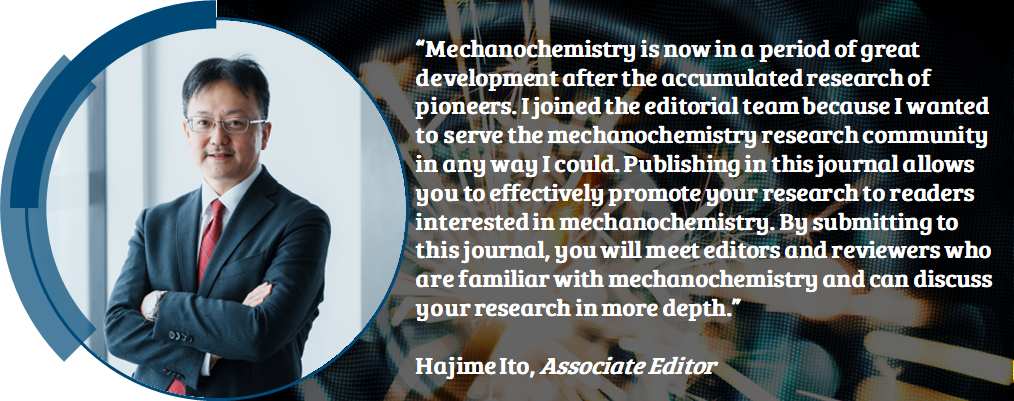
We are delighted to welcome Dr Franziska Emmerling, Federal Institute for Materials Research and Testing, Germany, as Associate Editor for RSC Mechanochemistry. Dr Emmerling initially joined the journal as Editorial Board member and has now been promoted to an Associate Editor.
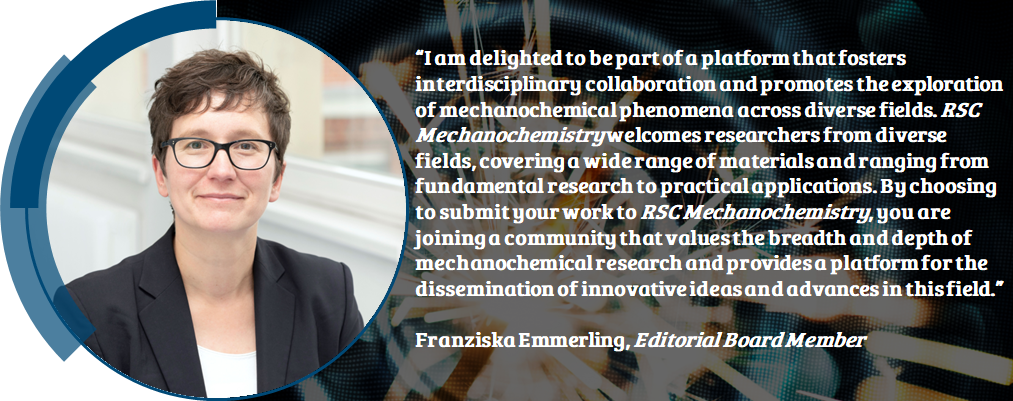
Learn more about Franziska Emmerling
Dr Franziska Emmerling is Head of the Department of Materials Chemistry at the Federal Institute for Materials Research and Testing in Berlin, Germany, and a privat dozent (lecturer) at the Department of Chemistry, Humboldt University, Berlin. She received her M.Sc. in Chemistry from the Albert-Ludwigs University of Freiburg in 2001, her Ph.D. in Chemistry from the same university in 2004, and completed her Habilitation at the Humboldt University in 2018. Emmerling’s research focuses on the design, synthesis, and characterisation of novel materials, with particular emphasis on their applications in green energy and catalysis. Dr Emmerling has made significant contributions to the development of mechanochemical synthesis methods for a wide range of materials. Her expertise extends to the development and use of synchrotron-based X-ray techniques, including diffraction and spectroscopy, to characterise materials and observe structural changes in situ. Dr Emmerling is a recognised expert in materials chemistry and mechanochemistry and serves as a reviewer for prestigious journals such as Science, Nature Communications and Angewandte Chemie. With a strong record of mentorship, Dr Emmerling has guided the research of numerous Postdoctoral Researchers, and PhD, Masters and Bachelor students, leaving a lasting impact on the field of chemistry.
Read some of her recent publications:
Kerstin Scheurrell, Inês C. B. Martins, Claire Murray and Franziska Emmerling
Phys. Chem. Chem. Phys., 2023, 25, 23637
Unintended Rate Enhancement in Mechanochemical Kinetics by Using Poly(methyl methacrylate) Jars
Kevin Linberg, Franziska Emmerling and Adam A.L. Michalchuk
Cryst. Growth Des. 2023, 23, 19-23
In situ time-resolved monitoring of mixed-ligand metal-organic framework mechanosynthesis
Max Rautenberg, Biswajit Bhattacharya, Julia Witt, Mohit Jain, Franziska Emmerling
CrystEngComm, 2022, 24, 6747-6750
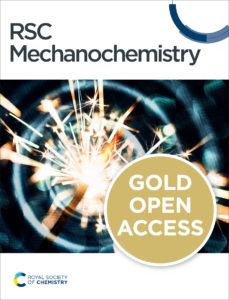 |
RSC Mechanochemistry offers you an inclusive and dedicated home for the ideas, scientific language and approaches that cut across the many disciplines mechanochemistry touches. Here we are seeking to build knowledge, as well as foster innovation and discovery at this forefront of chemistry. Whether you are seeking to understand the fundamentals of mechanochemistry, or you are excited by its applications and potential, this journal is for you.
|









